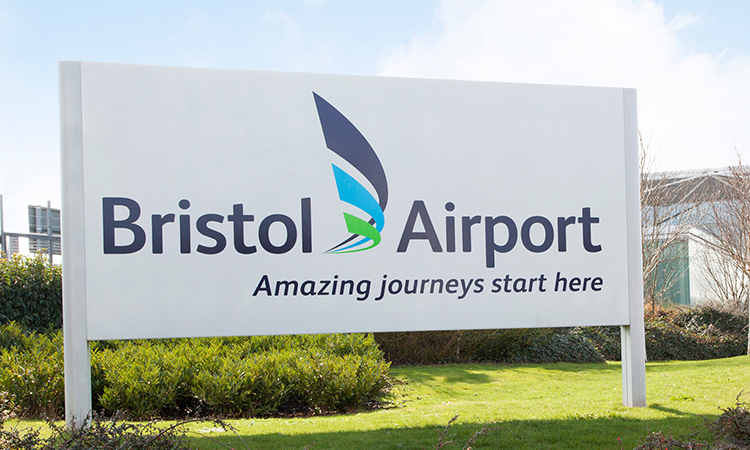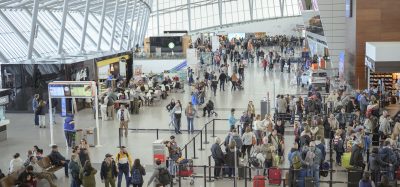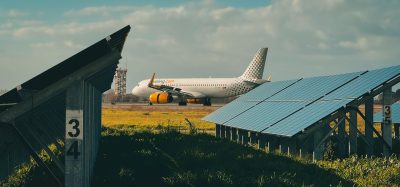Bristol Airport to become carbon neutral by the end of 2021 and net zero by 2030
- Like
- Digg
- Del
- Tumblr
- VKontakte
- Buffer
- Love This
- Odnoklassniki
- Meneame
- Blogger
- Amazon
- Yahoo Mail
- Gmail
- AOL
- Newsvine
- HackerNews
- Evernote
- MySpace
- Mail.ru
- Viadeo
- Line
- Comments
- Yummly
- SMS
- Viber
- Telegram
- Subscribe
- Skype
- Facebook Messenger
- Kakao
- LiveJournal
- Yammer
- Edgar
- Fintel
- Mix
- Instapaper
- Copy Link
Posted: 29 June 2021 | International Airport Review | No comments yet
Bristol Airport is set to become the first net zero airport in the UK through its commitments to be a net zero airfield, with net zero buildings and operating a net zero fleet of vehicles.


Credit: Bristol Airport
On 25 June 2021, a number of business, aviation and aerospace industry leaders from across the UK attended a Future of Flight event that was hosted at Bristol Airport (BRS). Panel discussions included the future of aviation through innovation and strategic leadership, and how business collaborating together will support the sector’s transition to net zero.
During the event, Bristol Airport announced that it will achieve carbon neutrality four years ahead of schedule, reducing the time scale from 2025 to 2021. Additionally, the airport is taking a leadership position in the industry and confirmed that it will be the first net zero airport in the UK by 2030, 20 years ahead of the UK government target date. BRS made three key commitments: to be a net zero airfield, with net zero buildings and operating a net zero fleet of vehicles.
The Future of Flight event was attended by the Mayor of Bristol, Marvin Rees; the Leader of South Gloucestershire Council, Toby Savage; Michael Cervenka, President of Vertical Aerospace; and James Richmond, Advanced Air Mobility Lead at Atkins.
A consortium led by Atkins (of which Bristol Airport is a participant) is exploring the feasibility of air taxi services in the south west of England using electric vertical take-off and landing (eVTOL) aircraft. The project aims to create a blueprint for the supporting complex physical and digital infrastructure; one that, with successful demonstration, can be used by many to revolutionise transportation in a sustainable way.
James Richmond, Advanced Air Mobility Lead at Atkins, said: “Decarbonising aviation is an enormous challenge that requires multi-disciplinary global action from across the entire ecosystem, working together towards common goals and with robust policies in place. Embracing technological innovation will be key and, as the industry develops solutions, working early with ambitious partners to test and validate these will be fundamental to their implementation and success. The work that we’re doing today with Bristol Airport is a great example of this, and we look forward to jointly shaping the future of flight.”
Michael Cervenka, President of Vertical Aerospace, said: “eVTOLs represent by far the largest near-term commercial opportunity to revolutionise urban air mobility (UAM) and electrify air travel. When compared to helicopters, eVTOLs offer significant improvements in safety, noise and operating costs, whilst also, and crucially, making air travel carbon-free. They represent a huge global market opportunity and will change the way that people think about flying through the skies. Vertical strongly believes in a collaborative approach to capitalise on this opportunity, and the amazing partners that we are working with in the Future Flight project are a perfect demonstration of the world-leading capabilities that we have in the UK.”
Councillor Toby Savage, Leader of South Gloucestershire Council, said: “I am delighted to be working closely with Bristol Airport and with so many global leaders in the aviation industry to support innovation and decarbonisation in the future of flight. South Gloucestershire has a proud and internationally significant history in aerospace, and we continue to host the R&D which is critical to retain our status on the world stage at an important time for the industry and for the climate.”
Mayor of Bristol, Marvin Rees, commented: “I welcome Bristol Airport’s ambition to drive carbon neutrality and environmental sustainability into the heart of its future, and to show leadership on how the sector can green its impact and deliver on testing carbon goals. In an increasingly interconnected world, we must harness technology and innovation to reach our goal of carbon neutrality. Bristol’s aerospace sector is well placed to continue to lead on solutions to this challenge.”
Dave Lees, CEO of Bristol Airport, said: “Today is another milestone in looking towards the future, showcasing how businesses in the region collaborating together using the latest technology and innovative solutions will meet decarbonisation targets. The aviation industry is taking its responsibilities seriously in addressing climate change challenges, working together to create the solutions now and in the future.”
The event is part of a series being organised by Bristol Airport which aims to showcase the region’s role in driving clean aviation growth and set out proposals on how the aviation sector can decarbonise. Further collaborations and proposals are expected in the coming months as the region turns towards recovery from COVID-19 and in the lead up to the United Nations’ (UN) 2021 Climate Change Conference (COP26) in November 2021, which is being hosted in Glasgow. This will include working with the Western Gateway to promote and maximise economic growth across the west of England and South Wales.
Related topics
Aircraft, Airside operations, COVID-19, Emissions, Sustainability, Sustainable development, Terminal operations
Related airports
Related organisations
Atkins, AtkinsRéalis, South Gloucestershire Council, Vertical Aerospace
Related regions
Related people
Dave Lees, James Richmond, Marvin Rees, Michael Cervenka, Toby Savage


















